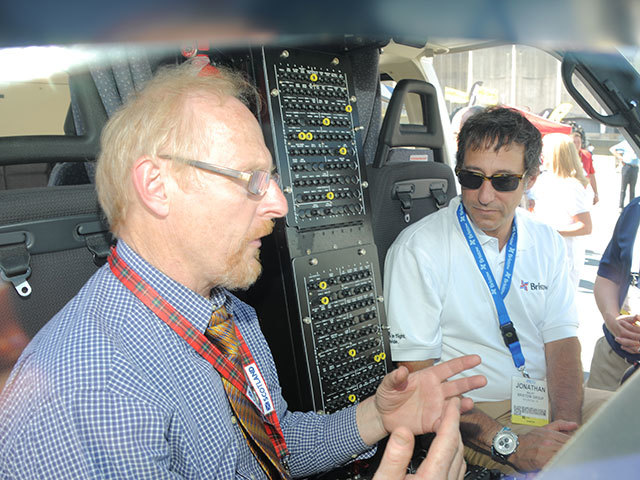
A top boss at Bristow, one of the North Sea’s big three helicopter operators, says the company has no issue with accepting and adopting the raft of measures that the Civil Aviation Authority (CAA) plans to implement from next month.
“The first thing is that safety is our number-one core value,” Bristow Group chief financial officer Jonathan Baliff said at the Offshore Technology Conference in Houston.
“While that sounds a bit like a euphemism, we do live it (safety) every day.”
It was clear that the CAA’s CAP1145 report did not faze Mr Baliff.
“In many ways, CAP1145 in our minds is part of a partnership with the CAA to make the whole industry more standardised and safer. We are big believers in it; we believe it will make us safer.
“That’s what all of the operators are trying to do,” he said. “Whether we’re flying in the North Sea or Australia, Mexico or Nigeria, that is something we’re trying to do in partnership.
“Even though there is specificity in CAP1145 on a number of major issues, like the rebreathe apparatus (for passengers), the number of passengers and where they sit, also sea states, for us it’s working within that partnership to get a safer industry.”
Mr Baliff pointed out that the CAA measures were not simply directed at the aircraft, rather they cover an entire system, from the check-in of commuting workers onshore right through to arrival offshore, and vice-versa, and more effective flight control.
He said too that Bristow and its peers did more than simply carry people as the companies play a central role in ensuring they are trained in safety before they fly, including how to get in and out of aircraft and how to respond in emergencies of the kind that triggered the CAA’s inquiry into North Sea helicopter safety.
Mr Baliff pledged that not only would Bristow work with the UK’s CAA to bring about change, the company would also co-operate with counterpart regulators.
On the issue of cost to meet the required changes, he said it was too early to determine.
“We can’t answer that yet. We’ve been focused much more on the safety implications; on being able to comply,” said Mr Baliff.
“We’re more than willing to bear the costs to make our flight regime . . . whether aircraft, training, the pilots . . . the safest. As much as we think about the costs, in general we’re trying to get to the safest outcomes. Then we’ll worry about the costs later.”
Turning to the company’s relationship with aircraft manufacturers like Sikorsky, that may be required to carry out physical changes to the machines flying in the North Sea airspace he said that they all had a role to play, but so too would other stakeholders including trade unions.
Mr Baliff said implementing much of CAP1145 could be counted in weeks and months, not years.
“We are working with a real sense of urgency to make it work within the timescale set,” he added.
Recommended for you
